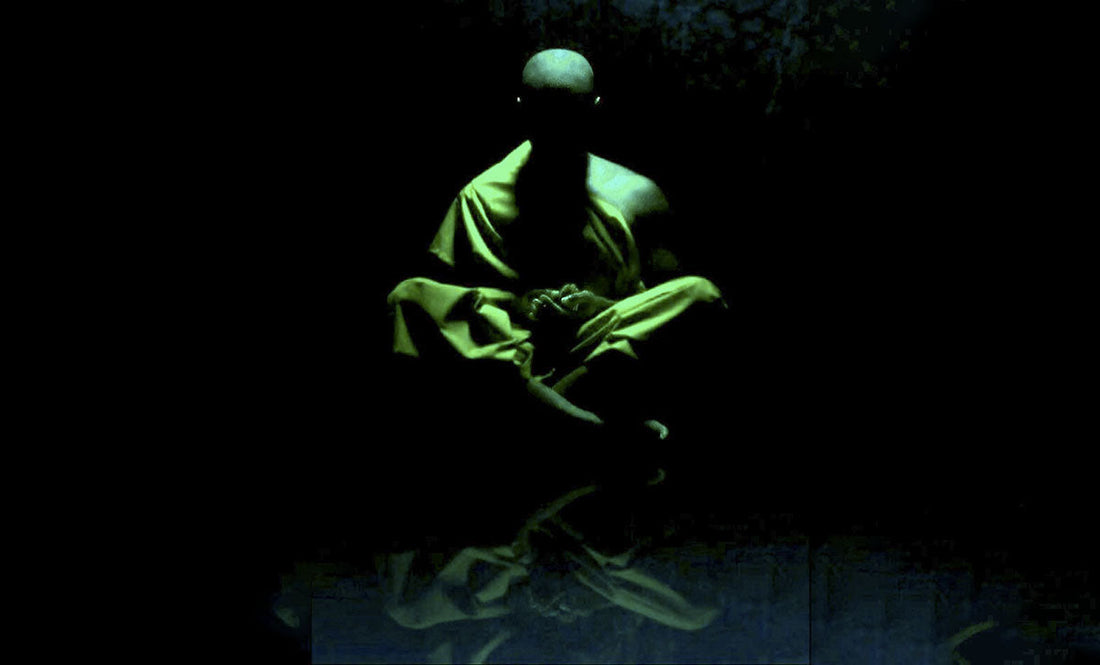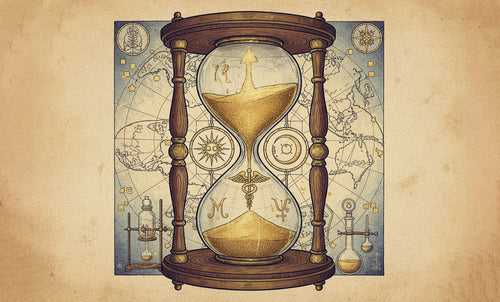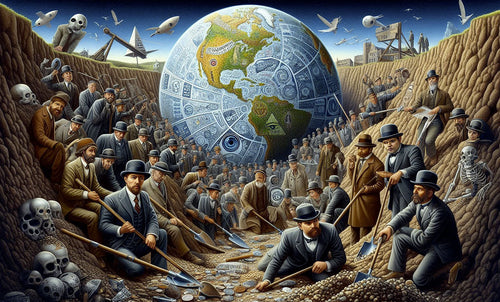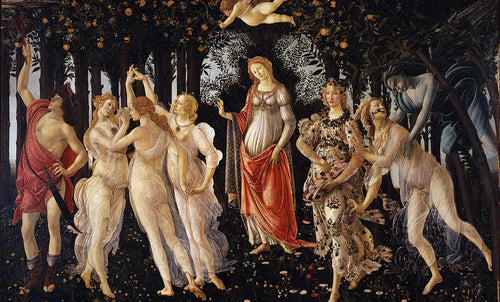
I'm not spiritual!
Tzur TreviPRAISE OF THE INEVITABILITY OF MYSTICISM.
Spirituality means absolutely nothing .
If you are trying to return to the eternal and total fullness of your Origin, then what you are doing is called Mysticism .
WARNING: I'm not saying that if you feel or claim to be spiritual, you are therefore a superficial or approximate person who doesn't want to get to the bottom of things. I'll simply explain to you why it's not something that suits me and I don't think it can be the definition of a search for the ultimate truth of things, which concerns perhaps one person in a thousand, who wants to get to the bottom of it, question after question and using everyone the rational and super-rational tools available to our current human condition. Wanting to live peacefully, content with what makes us more peaceful, is not a crime at all, and anyone who chooses this solution is not despicable. Amoral and self-centered people are a completely different thing, and those are a problem for everyone. Okay?
Lately I've been trying to understand exactly what I'm doing now that I'm about to start doing it in the world in front of everyone. better to have very clear ideas now, because soon it would really be too late.
I took the key words that describe the sector I am interested in and I observed the Hebrew translation considering the roots of the words that are used to exactly reconstruct the meaning.
They are in the first image below.
Am I a person of religion? No, I don't do religion. I am not a prophet, nor a religious reformer, nor an Enlightened One (from Bavaria or otherwise), nor one Anointed by the Lord and no angel has ever put a book in my hands or ever announced my upcoming motherhood.
Am I a person who talks about faith? No. I have a faith but I don't talk about it to anyone who doesn't have similar paths to mine. In fact, I do not belong to the line of thought "I believe ut sapiam" but "Scio ut credem" . That is, I have come to recognize in myself the presence of a faith as an effect of the cognitive experiences made over the decades in different seasons of my life and in a plurality of states of consciousness whether or not framed in specific practices.
Am I esoteric? Not in the commonly understood sense. For me, esotericism is not at all a goal or a cultural environment that I love. It is just a method, which in these fields is absolutely unavoidable. I recognize the esoteric nature of what I practice and believe in, precisely because it is not possible to transmit it to others in alternative ways to those in which it was transmitted to me: that is, through the patient and long-term guidance of realized masters who progressively and gradually they release knowledge, truths, evidence, practices and secrets in relation to your level of development along a traditional initiatory path. When what you have become allows you to ask the Master the right question, he will know that the time has come in which you are able to manage and assimilate the answer and the answer will be given to you, so that you can develop the next question within yourself .
Therefore, Mysticism and Spirituality remain. The answer would appear to be "Spirituality" or Ruhanniut. The Ecstatic or prophetic Kabbalah, that of Abulafia or of the Hekhalot, so to speak, is in fact called Kabbalah Ruhanniut. Ruach is in Hebrew the Spirit, the vital breath of the soul that emotionally animates the body. But "Spirituality" can no longer be the right answer today.
Spirituality is the word that it would be better for all of us to forget. She has become an all-round escort who lends herself to accompanying everything and more. She's all hair and makeup, she no longer has a face of her own.
Above all, with the evident crisis of faith and adherence of simple and common people to the monotheistic religions revealed in the industrialized and postmodern world, an artificial and perverse contrast has been created between SPIRITUALITY VS RELIGION. Spirituality is seen as a secular thing, devoid of the concept of the existence of a God, something purely human and humanistic which would consist in the aspiration of human beings to feel involved in the here and now to deploy ethical and virtuous behaviors for the benefit of gender human being, thus going beyond themselves. Maga Magò Margherita Hack used to say "There is no need for a God to exist at all for me to decide to be ethical" .
The classic phrase that you have all heard thousands of times is "I'm not religious, I don't believe in God, but I'm spiritual" . And it's an annoying phrase.
Sociologist of religion David Mills had something to say about it, and he didn't mince words:
“You may have heard some people say that they are “spiritual but not religious.” My guess is that this definition is not used by many people but describes many people, even many who attend church.
I do not understand her. This idea baffles me. It's too evanescent, like one of those nebulosities you see in a forest and disappear when you enter it. If I'm going to invest in something, I want it to be something I can touch.
The definition is a bit vague. An English writer I came across in the reliably anti-religious English newspaper The Guardian admitted to being one of the people who think this way, but then explained: “It's an exasperating phrase, oozing both smug superiority ('I'm more deeper than an atheist but smarter than a believer!') what New Age gullibility.”
That's my impression too."
And it's mine too.
Lately an Italian mental coach, Agostino Famlongo, in addition to very interesting graphs, has attempted to give a modern concrete definition of what spirituality can be in summary:
he first talks to us about the four essential types of human attitudes through which to live spirituality:
- Spirituality as the highest level of every evolutionary line.
- Spirituality as an evolutionary line in its own right (see graph).
- Spirituality as a particular state of consciousness (peak-experience).
- Spirituality as an attitude towards life.

Having said this he continues by saying:
What is the best interpretation among those proposed? None.
That is, they all have the same value.
No definition has the right to prevail over the others.
All these approaches to spirituality have their own validity and a legitimate right to be taken into consideration.
Problems arise in two scenarios:
- When, not understanding these four nuances, one person talks about spirituality intending one meaning to another who instead implies another. Misunderstanding is guaranteed.
- When you consider a single interpretation of spirituality without considering the others valid. Significant growth opportunities remain precluded. In light of this knowledge, the solutions are simple, mirroring the two problems just exposed:
- Always specify which interpretation you are referring to when talking about spirituality to someone else.
- Broaden your horizons and include all four possible interpretations in your spiritual growth landscape.
And he concludes his exposition with an appreciable attempt at synthesis:
A possible approach to spirituality, which includes all four meanings exposed here, is this:
SPIRITUALITY IS CONTACT WITH ONE'S HUMANITY.
Not contact with something transcendent, which goes beyond, but with something that belongs to the human being as an individual aware of existing.
Whether we consider spirituality as the maximum development of evolutionary lines, as an evolutionary line in itself, as a particular state of consciousness or as an attitude towards life, in any case we are dealing with aspects that characterize us as human beings equipped with awareness.
Spiritual growth is completely reclaiming one's humanity.
Not transcending and abandoning life, as in Spiritual Bypass, but living one's life fully, in the full spectrum of its potential, in relationship with other aware individuals.

EXCELLENTLY GENERAL DEFINITION BUT THE PRICE YOU PAY IS TO BE A VERY GENERIC TAUTOLOGY.
Without the existence in the " spiritual " context of a structure of Being comprehensible to man that gives him knowledge of where he is, where he comes from and why, to do what he exists, that is, in other words, an ultimate sense ultimate purpose an ultimate explanation, we are not able to truly appreciate the dizzying beauty and importance of our free will as a necessary pre-condition of the ethical quality of our action or inaction. Remove God from this picture and you are left with just a nice scoop of ice cream without a cone, falling onto the boiling asphalt of August, which is destined in a few seconds to become useless sugary mush. The physics of the Quantum Mechanical Vacuum has recently demonstrated that the emanatist philosophy of the chain of being and the coincidence between Being and Void not only demonstrates the certain existence of Being as the only true reality upstream of everything but confirms the validity perceived by philosophers thousands of years ago of the series of passages that explain how from the One we reach the Multiple and from the Multiple the One is reconstituted in the continuous pendulum dialectic between the Being that is and the existent that is not. What is moreover already effectively expressed by Schroedinger quantum physics. And in any case the laudable general formulation of a definition of " Spirituality " by Famlongo on the other hand does not even take into account what Dr. Elizabethh Scott PhD calls “potential spirituality trap” to describe the phenomenon known as
SPIRITUAL OVERRIDE
This involves a tendency to use spirituality as a way to avoid or evade problems, emotions, or conflicts. For example, instead of apologizing for some kind of emotional hurt you caused someone else, you could get around the issue by simply excusing it and saying that "everything happens for a reason" or suggesting that the other person just needs to "focus on the positive ." Spirituality can enrich your life and lead to a number of benefits, but it is important to be cautious not to let spiritual ideals lead to pitfalls such as dogmatism or a reason to ignore the needs of others.
No, I'm not spiritual. This is finally clear.
I am a mystic, a theist who has faith in what he has understood, who, working within a tradition that is esoteric in method and sapiential in ends, tries to reveal to as many people as possible the ways, the steps, the phases, the stages , the techniques for climbing that ladder of Being.

That ladder that the One Being has descended through a series of cascading emanations from and of its essence, and which we multiple and impermanent phenomenal existences are called to climb back up to rejoin our divine spark with the one being, enriching it in knowledge with the revelatory and self-cognitive power of our earthly experiences.
Torat Niglà, this is the name of Mysticism in Hebrew. “The hidden instruction manual” is a possible translation. Hidden in the texts which can be obtained from the letter of the message and to then be combined with the clear, metaphorical, philosophical and eschatological meaning of the text itself, for an instantaneous APOCALYPSE (re-revelation) of its absolute meaning which like a compass needle stuck in the heart and in the mind guide us infallibly, at the end of our earthly toil, to the House without Roof, Walls and Doors from which our spark had departed. So that the glorious little drop that we were becomes again
cradled in the Great Ocean in which it dissolved.
Safe travels and good luck to all of you.

















































1 comment
grazie per il chiarimento della Spiritualità , ho 74 anni e purtroppo o per fortuna non ho ancora trovato un chiarimento sul mio percorso terreno , complimenti per la spiegazione" Spirituale "